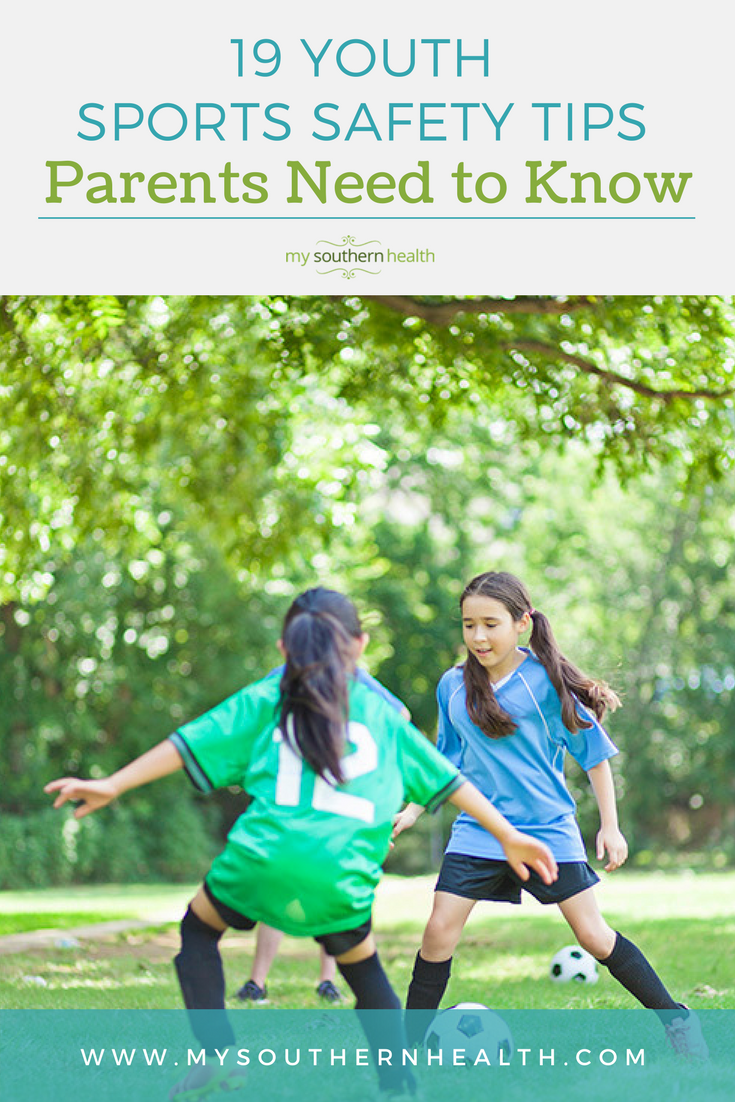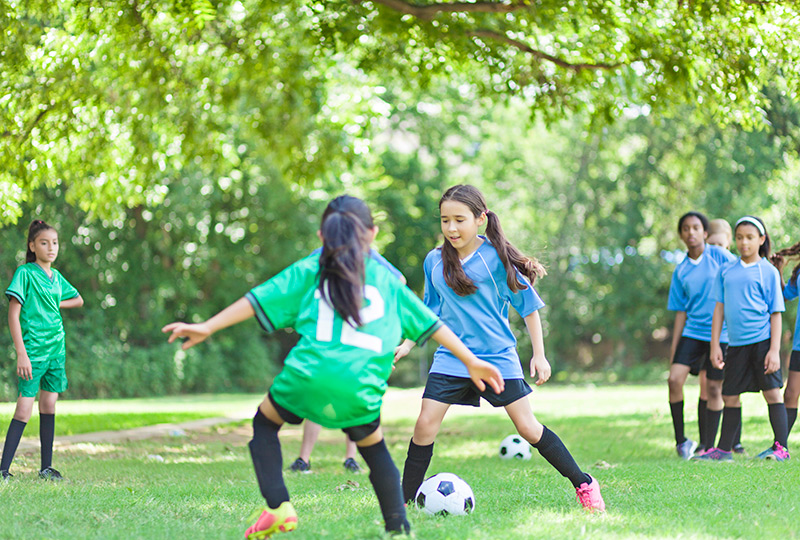Youth sports can teach children so much, but they need to stay safe. Here are sports injury prevention tips for kids.
Participation in sports offers tremendous social, emotional and physical benefits for children. We know that one of the worst things for kids is being on the sidelines with an injury. As parents and coaches, there are simple things we can do to help reduce preventable injuries, so our kids can continue playing the games they love. Here are the important sports safety tips parents should know:
Prepare kids for the demands of playing a sport.
- Before playing organized sports, make sure your child receives a pre-participation physical exam, performed by a doctor, a nurse practitioner or qualified clinician under the supervision of a physician. Whoever performs the exam, the same practices should be followed including the need for a medical history.
- In case of an emergency, share contact information (phone numbers, doctor information and allergy information) with your athlete’s coaches.
- If your athlete has any history of asthma or other medical conditions that require special attention, meet with the coach before the first practice.
Warm up and stretch before games and practices.
- Make sure there is time set aside before every practice and game for athletes to warm up properly.
- Stretching before practice and games can release muscle tension and help prevent sports-related injuries, such as muscle tears or sprains.
- Kids should start with about 10 minutes of jogging or any light activity, and then stretch all major muscle groups, holding each stretch for 20 to 30 seconds.
Remember to hydrate.
- Learn the signs and symptoms of dehydration and other forms of heat illness.
- Have your kid take a water bottle to practice and games. Encourage children to stay well hydrated by drinking plenty of water before, during and after play.
- Encourage your athletes to drinks fluids (water is the best option) 30 minutes before activity begins and every 15-20 minutes during activity.
- If you’re a coach, mandatory fluid breaks during practice and games are a great idea – don’t wait for your athletes to tell you they’re thirsty.
Wear appropriate sports gear.
- Having kids wear the appropriate and properly fitted sports gear during practice and games can help avoid minor and serious injuries.
- Make sure athletes have the right equipment and are wearing it for both practices and games. The right equipment may include helmets, shin guards, mouth guards, ankle braces, shoes with rubber cleats and sunscreen.
Don’t take chances with the brain: Know the signs and symptoms of concussions.
- Learn the signs and symptoms of a concussion. This information is important for coaches, parents and athletes.
- A player with a suspected concussion must be immediately sidelined until evaluated and released by a medical professional. The important thing is to protect players who have had a concussion from getting another one.
- A good rule of thumb: When in doubt, sit them out.
Make rest a priority.
- To help avoid overuse injury, rest all players during practices and games.
- Encourage players to communicate any pain, injury or illness they may have during or after any practices or games. Make sure they know it’s smart to tell coaches, parents or another adult if they’re hurt or not feeling well.
- Kids should have at least one or two days off from any particular sport each week.
- Take time off from one sport to prevent overuse injuries. It is an opportunity to get stronger and develop skills learned in another sport.


